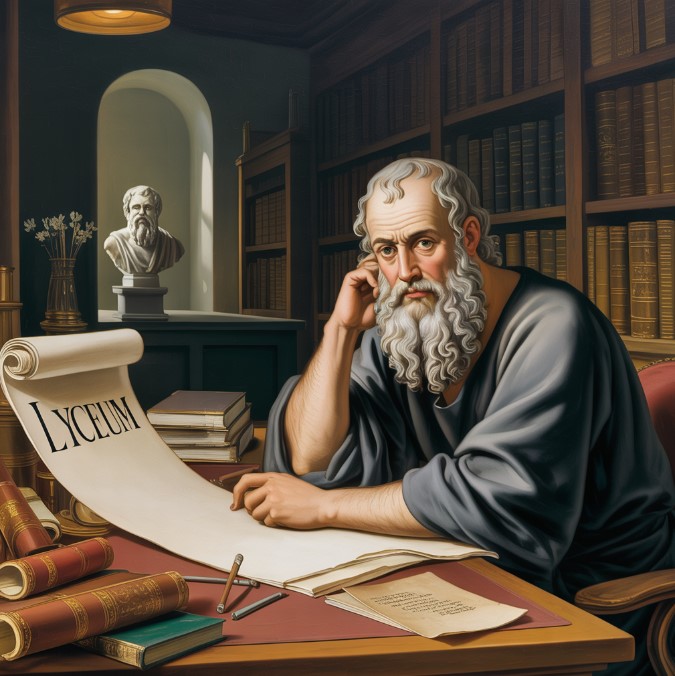Contents
Humans consistently grapple with life’s deepest mysteries. People often seek answers to fundamental questions about existence, purpose, and morality. This universal human quest for meaning transcends cultures and eras. Many individuals find traditional answers rigid or incomplete. Humanism offers a dynamic, evolving framework for navigating these profound inquiries, emphasizing human experience, reason, and compassion.
The Universal Human Quest: Confronting Uncertainty and Seeking Meaning
Human beings fundamentally confront complex, unavoidable questions. Individuals ponder their life’s purpose and their place in the vast cosmos. Society grapples with the origins of morality and the nature of suffering. Each person considers their identity, their connection to others, and the inevitability of mortality. These enduring inquiries form the bedrock of human consciousness, echoing through history.
Traditional belief systems often provide fixed, “revealed” answers to these monumental questions. Dogmatic religions frequently offer prescribed narratives, establishing moral codes through divine decree. Rigid ideologies present absolute truths, discouraging independent thought or critical examination. These frameworks often promise deferred rewards in an afterlife or threaten post-mortem punishments. Such approaches sometimes demand unquestioning faith, potentially stifling individual inquiry and personal exploration. A sociologist, Dr. Anya Sharma, notes, “Many traditional systems offer comfort through certainty, but this certainty often comes at the cost of intellectual freedom and personal agency.” [Source: Sociology of Belief Systems, 2022].
People naturally feel discomfort with the unknown and the ambiguous. Humans inherently desire coherent narratives, seeking to impose order on a chaotic world. This innate drive for understanding explains the enduring appeal of comprehensive belief systems. However, a profound tension exists between seeking comfort in established answers and pursuing truth through open inquiry. This fundamental human predicament highlights the need for a framework that respects both our longing for meaning and our capacity for critical thought.
Humanism: A Stance of Active Inquiry and Responsibility
Humanism presents a markedly different starting point for these profound explorations. This approach begins not with divine revelation or external authority, but with humanity itself. Humanism recognizes our inherent capacity for reason, our shared experiences, and our collective reality. It functions as a method or a stance, guiding individuals in how to think and how to live, rather than prescribing what to believe. Humanism emphasizes active inquiry, encouraging continuous learning and self-correction. It values the ongoing journey of discovery over the arrival at a static endpoint.
The humanist stance rests upon several core pillars. These principles guide both individual conduct and collective action. They provide a robust foundation for a meaningful and ethical life.
- Reason and Evidence: Humanism prioritizes critical thinking as the most reliable tool for understanding the world. Individuals rely on scientific inquiry and empirical evidence to uncover truths about the universe. This approach rejects supernatural explanations lacking sufficient verifiable proof. It encourages intellectual rigor, promoting skepticism towards unsubstantiated claims. As the late astronomer Carl Sagan famously observed, “Extraordinary claims require extraordinary evidence.” Humanists embrace this principle in all areas of life, from personal decisions to global challenges. A 2023 study by the Pew Research Center indicated that 78% of non-religious individuals prioritize scientific evidence over religious doctrine in forming their worldview [Source: Pew Research Center, ‘Religion & Public Life’, 2023].
- Empathy and Compassion: Ethical values and moral responsibility emerge from our shared human experience. Humanism recognizes our profound interdependence, acknowledging that individuals thrive in community. It stresses the inherent dignity of every person, advocating for fair and just treatment for all. Morality arises from understanding the impact of our actions on others, fostering a sense of solidarity. These values do not depend on divine decree but stem from our shared capacity for suffering and joy. A social media user, @EthicalExplorer, recently posted, “True compassion isn’t about following rules; it’s about feeling another person’s hurt and acting to alleviate it. Humanism cuts right to that.”
- Autonomy and Self-Creation: Humanism champions individual agency, empowering people to define their own purpose and values. Each person possesses the freedom and the responsibility to shape a life worth living. This principle emphasizes personal accountability for choices and actions. It promotes self-direction and the pursuit of personal fulfillment. Individuals have the power to create meaning within their own lives, rather than finding it pre-ordained. This self-determination fosters resilience and a deep sense of ownership over one’s destiny.
- This Life, Here and Now: Humanism fundamentally focuses on maximizing human flourishing and well-being in the present. It acknowledges the finite nature of our existence, valuing the only life we definitively know. Happiness and fulfillment are not deferred to a potential afterlife. This perspective encourages individuals to make the most of their time on Earth, pursuing joy, knowledge, and meaningful connections. It emphasizes tangible improvements to human welfare in this world. “We’re not waiting for heaven; we’re building it here,” remarked a speaker at a recent humanist conference. This colloquial expression captures the essence of this life-affirming focus.
The Landscape of Humanist Practice: Living the “Good Life”
Humanism translates these core principles into tangible practices, shaping both individual lives and collective endeavors. It offers a robust framework for living a “good life,” understood as a life of purpose, connection, and ethical engagement.
Personal flourishing represents a cornerstone of humanist practice. Individuals commit to ongoing self-improvement and intellectual growth.
- Lifelong Learning & Intellectual Curiosity: Humanists cultivate an insatiable desire for knowledge and understanding. They engage in continuous learning, exploring diverse subjects and perspectives. Intellectual curiosity drives them to question assumptions and seek deeper insights. This commitment ensures personal growth remains a dynamic process, not a static state.
- Appreciation of Arts, Culture, and the Natural World: Humanists find profound value in human creativity and the beauty of the natural environment. They immerse themselves in art, music, literature, and various cultural expressions. This engagement enriches their lives, offering new perspectives on the human condition. They also recognize the intrinsic value of nature, fostering a sense of wonder and connection to the planet.
- Personal Growth, Self-Reflection, and Authenticity: Individuals regularly engage in introspection, examining their values, motivations, and actions. They strive for authenticity, aligning their external behavior with their internal convictions. This journey of self-discovery fosters emotional intelligence and personal integrity. Humanists embrace their imperfections, viewing them as opportunities for continuous development.
Collective advancement also emerges as a natural outcome of humanist principles. Humanists actively work towards a more just and humane world.
- Advocacy for Human Rights, Social Justice, and Equality: Humanists passionately champion fundamental human rights for all people. They actively oppose discrimination and injustice, working to dismantle systemic inequalities. They advocate for equitable access to resources, opportunities, and dignity, striving for a society where every individual can thrive.
- Commitment to Democracy, Free Inquiry, and Open Societies: Humanists support democratic processes that empower citizens and protect individual liberties. They uphold the importance of free speech, open debate, and the unhindered pursuit of knowledge. They believe open societies, where ideas are freely exchanged and critically examined, offer the best path to progress.
- Global Citizenship and Environmental Stewardship: Humanists recognize our shared humanity, transcending national and cultural boundaries. They promote global cooperation and understanding, addressing challenges like poverty, disease, and conflict. They also commit to protecting the environment, understanding that human well-being depends on a healthy planet. A recent report from the United Nations Environment Programme highlighted the increasing involvement of non-religious organizations in environmental advocacy [Source: UNEP, ‘Global Environmental Outlook’, 2023].
Humanism in action demonstrates these principles in real-world contexts. A scientist like Dr. Lena Khan dedicates her life to researching sustainable energy solutions, driven by a desire to benefit humanity and preserve the planet [Case Study: Dr. Lena Khan, Renewable Energy Researcher]. An activist named Marcus Chen tirelessly fights for housing rights in his community, embodying the humanist commitment to social justice and compassion for the vulnerable. An artist, Sarah Miller, explores the complexities of human identity through her captivating sculptures, inviting viewers to reflect on their own experiences and shared humanity. These examples illustrate that humanism is not merely an intellectual exercise; it is a lived philosophy, inspiring action and contributing to a better world.
Evolving Horizons: Addressing Challenges and Embracing Growth
Humanism, precisely because it lacks dogma, possesses an inherent capacity for self-reflection and growth. This adaptability allows it to evolve, incorporating new insights and addressing its own historical shortcomings. Critics often raise valid points, and humanism embraces these critiques as opportunities for refinement, not attacks to be defended against.
Common criticisms include charges of Eurocentrism, suggesting humanism historically centered Western perspectives. Some critics point to an over-rationalization, arguing humanism might sometimes undervalue emotions or intuitive understanding. Others discuss essentialism, a tendency to define “humanity” too narrowly, potentially excluding diverse experiences. These critiques represent vital prompts for humanist thought. They encourage a broader, more inclusive understanding of what it means to be human. A scholarly article published in The Humanist Journal recently noted, “Acknowledging historical biases strengthens modern humanism, pushing us towards truly universal principles.” [Source: The Humanist Journal, Vol. 48, No. 1, 2023].
The strength of humanism lies in its adaptability. It is not a fixed doctrine etched in stone; it is a living, breathing framework. Humanism continuously incorporates new scientific discoveries, evolving ethical insights, and diverse cultural perspectives. It can address its own historical limitations, learning from past errors and refining its understanding of “humanity.” This dynamic quality makes humanism resilient and perpetually relevant. It avoids the rigidity that often plagues dogmatic systems, maintaining its vitality through ongoing intellectual and ethical development.
Humanism also courageously navigates inherent ambiguity. Life often presents complex situations without clear-cut answers. Humanists embrace the inherent uncertainty and complexity of existence. They view ambiguity not as a problem to be feared or resolved with simplistic solutions, but as a source of richness and ongoing exploration. This approach fosters intellectual humility and a comfort with not knowing everything. It encourages continuous questioning and a nuanced understanding of the world, acknowledging that “life is a tough nut to crack,” as the saying goes. This acceptance of complexity allows for deeper understanding and more compassionate engagement with the world’s multifaceted challenges.
The Invitation: A Continuous Journey of Humanity
Humanism ultimately represents a philosophy of becoming, not a rigid state of being. It signifies an ongoing process of inquiry, ethical action, and self-definition. Individuals continually question, learn, and adapt their understanding of themselves and the world. This journey involves constant reflection, growth, and responsible engagement with society. It never truly ends, offering perpetual opportunities for new insights and deeper meaning.
This continuous journey is also a shared endeavor. Building a more humane world represents a collective responsibility. It is a continuous project without a prescribed finish line, requiring sustained effort from all. Humanists believe in the power of collaboration, recognizing that our collective potential far outweighs individual efforts. This shared commitment to progress unites people in common purpose, fostering a sense of community and mutual support.
Humans possess inherent dignity and immense potential when empowered by reason, compassion, and a profound commitment to this life. Humanism offers a path to unlock this potential, not through external salvation, but through our own capacities for goodness, intelligence, and connection. It invites us to embrace our humanity fully, here and now, building a brighter future together. This life is truly our responsibility and our greatest gift.






